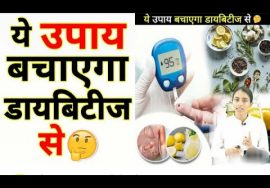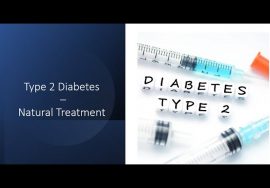DKA Diabetic KetoAcidosis – patient education video
What is diabetic ketoacidosis? — Diabetic ketoacidosis is a serious problem that happens to people with diabetes when chemicals called "ketones" build up in their blood. It can happen to people with either type 1 or type 2 diabetes, but it is more likely to affect people with type 1. That's because people with type 1 make little or no insulin, a hormone that allows the body to use sugar as a source of energy.
Normally, the body breaks down sugar as a source of energy. But in people with diabetes who do not make any insulin, the body is unable to use sugar. When the body can't use sugar, it burns fat as a source of energy. But burning fat can cause the body to make too many ketones. When ketones build up in the blood, they can be toxic.
What causes diabetic ketoacidosis? — People can get diabetic ketoacidosis for a few reasons:
●They are not getting treated for diabetes (possibly because they don't know they have it) and so their body is breaking down fat.
●They have a major illness or health problem, such a heart attack or infection.
●They take certain medicines or illegal drugs.
●They don't take their insulin as directed.
●Their insulin pump does not work correctly.
What are the symptoms of diabetic ketoacidosis? — The symptoms can include:
●Feeling very thirsty and drinking a lot
●Urinating a lot, including at night
●Nausea or vomiting
●Belly pain
●Feeling tired or having trouble thinking clearly
●Having breath that smells sweet or fruity
●Weight loss
Should I see a doctor or nurse? — See your doctor or nurse right away if you have the symptoms listed above. Also, see your doctor or nurse if your blood sugar levels keep being higher than they should be.
Is there a test for diabetic ketoacidosis? — Yes. If the doctor or nurse thinks you have diabetic ketoacidosis, he or she will order several blood tests, including tests to check your blood sugar and ketone levels. He or she will also check your urine for ketones. These tests can show whether you have diabetic ketoacidosis.
Because diabetic ketoacidosis can cause problems with the heart, you might also need an electrocardiogram. That is a test to measure the electrical activity in the heart.
How is diabetic ketoacidosis treated? — Treatment is done at the hospital and can include:
●Fluids and electrolytes – When dealing with diabetic ketoacidosis, the body loses a lot of fluids. It also loses electrolytes, chemicals such as sodium and potassium, that keep cells working normally. As part of treatment for the condition, doctors must replace lost fluids and electrolytes.
●Insulin – When the body has enough insulin, it can use sugar as fuel and it does not need to break down fat.
Can diabetic ketoacidosis be prevented? — You can reduce your chances of getting diabetic ketoacidosis by:
●Taking your insulin exactly as directed
●Measuring your blood sugar often to make sure it is not too high or too low












I’m a LVN and I’m using this as a review thank you. Also sending it to a patient for patient education i trying not to use too many big words so that my patient can understand the medical jargon is for us, but I totally believe in dumbing things down☺😇🤫 even for myself
thank you so much now I can feel smart Today you’re the best!
GODBLESS thank you so much doc🙏🌺👍GODBLESS
Awesome info!
Great information thank you 😊
I experienced DKA February2016 it is now October and I am still suffering lingering effects. My BG was 377 but I had been sick and unable to care for myself. Do what ever you can to prevent this life threatening illness, I was told that I would have died if I had not made it to the ER
I’m so glad you made it. There have been Bee Gees that have been way higher than that but it is very serious. It should be ALSO noted that people can get dka wild blood sugar is in normal range or even while being low, something that a lot of doctors and nurses don’t tell you.
My mother was told by an urgent care doctor to go to the emergency room immediately when they found she had ketones in her urine and she has refused to go, they made her sign a release form. I don’t even live in the same country. What can I do?
She went to the dr because she has a UTI and a cold and she thinks she should wait until that’s cleared up before going to the hospital. She is clearly not thinking straight and has convinced my dad she is fine.
dr my age is 17 im girl i dependent on isuline i have dabetic type 1 scein 14 year back when i was 3 year old i have 2+ ketones now so wanna aks you what should i do now i cant go hospital now
The older people in my Mothers side of the family are all diabetic or prediabetic. They are also heavy, so, we all grew up thinking that diabetes was only in fat people, sorry for that ignorance. In 2015, my 25 year old thin, muscular son went to the hospital very ill. He was in ketoacidosis, Type 1 diabetic. My question is this…. Is a Ketogenic diet safe for a type 1 diabetic or a person who is hypoglycemic?
Take that up with your doctor. I just seen this comment now so I apologize that it old.
Type 1 diabetes is a whole different disease than type 2 diabetes although it still has the same diabetes name in it.
It is just as different as lung cancer is to celiac disease.